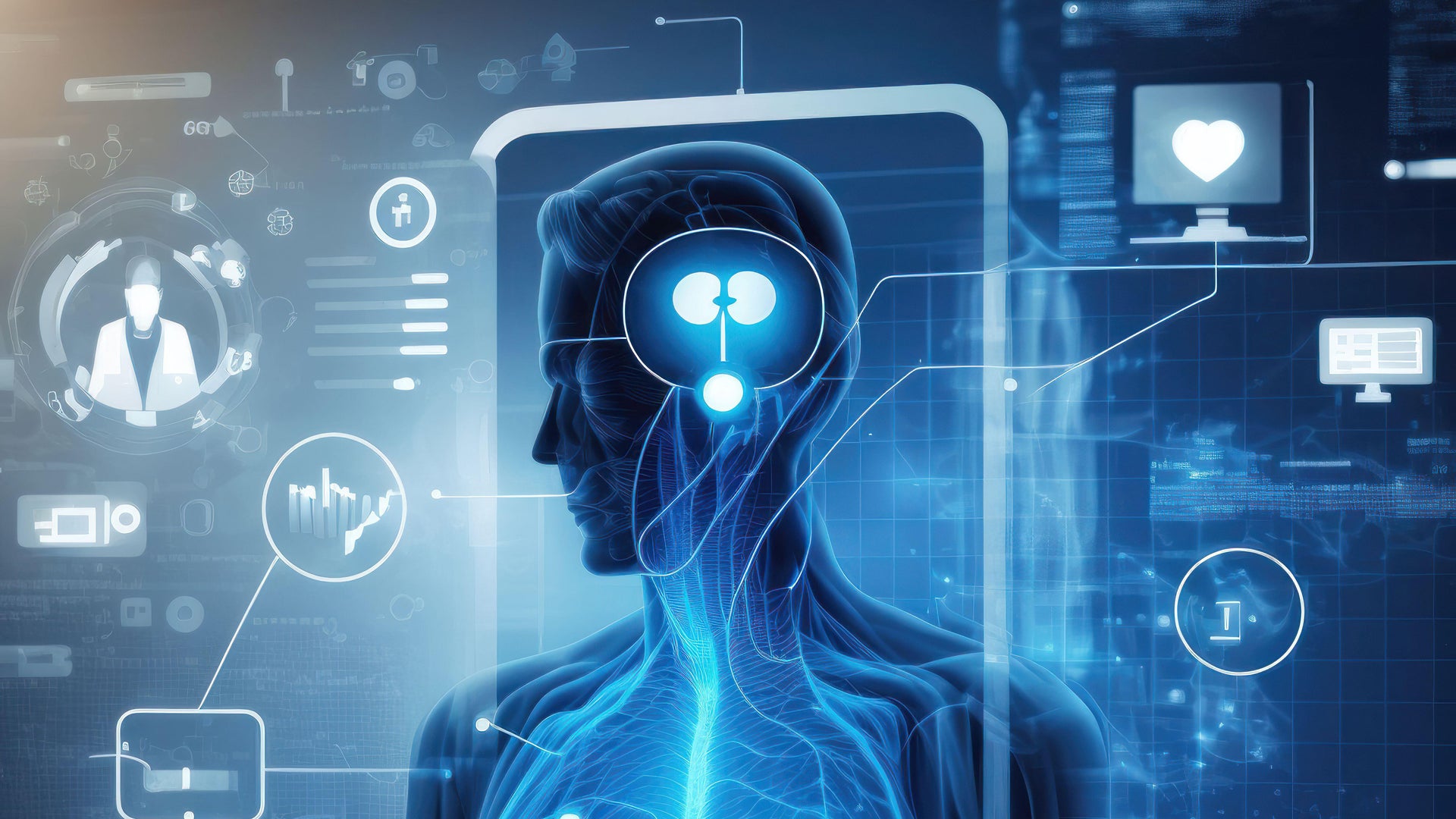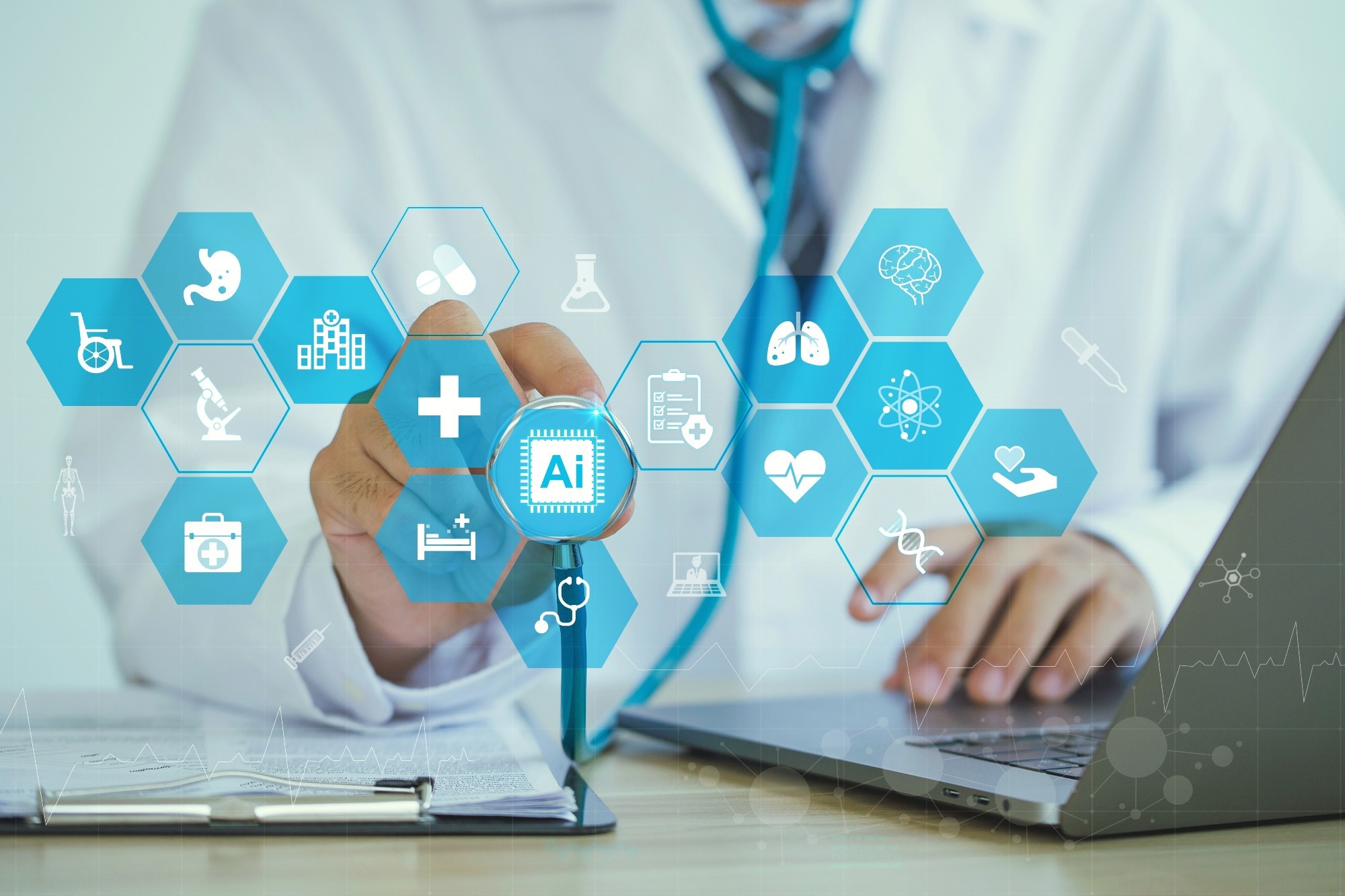
The Use of AI Technology for Disease Diagnosis, Drug Development, and Healthcare Management – AI technology has been revolutionizing various sectors, and healthcare is no exception. From disease diagnosis to drug development and healthcare management, AI is transforming how we approach medical challenges, making healthcare more efficient, accurate, and accessible. Let’s dive into how AI technology is making waves in these critical areas.
Disease Diagnosis

One of the most promising applications of AI technology is in disease diagnosis. Traditional diagnostic methods, while effective, often require considerable time and resources. AI algorithms, particularly those leveraging machine learning and deep learning, can analyze vast amounts of medical data quickly and accurately, offering earlier and more precise diagnoses.
For instance, AI-powered imaging tools can detect anomalies in medical scans, such as X-rays, MRIs, and CT scans, with remarkable accuracy. These tools can identify patterns and markers that might be missed by the human eye, leading to earlier detection of conditions like cancer, neurological disorders, and cardiovascular diseases. This early detection is crucial, as it often means that treatment can begin sooner, potentially improving patient outcomes.
Moreover, AI technology can analyze electronic health records (EHRs) to identify patients at risk of developing certain conditions. By examining patterns in data such as patient history, genetics, and lifestyle factors, AI can predict the likelihood of diseases like diabetes or heart disease. This predictive capability allows for proactive measures, including lifestyle changes or preventive treatments, to be implemented before the condition fully develops.
Drug Development

The process of developing new drugs is traditionally lengthy and expensive, often taking years and billions of dollars to bring a single drug to market. AI technology is poised to significantly streamline this process, making drug development faster, more efficient, and less costly.
AI can assist in several stages of drug development, from initial discovery to clinical trials. In the discovery phase, AI algorithms can analyze vast databases of chemical compounds and biological data to identify potential drug candidates. These algorithms can predict how different compounds will interact with target proteins or disease pathways, significantly narrowing down the list of potential candidates that require further testing.
Furthermore, AI can optimize the design of clinical trials by identifying suitable candidates for participation, predicting how patients will respond to treatments, and monitoring outcomes more effectively. By analyzing data from previous trials and ongoing studies, AI can help researchers design more targeted and efficient trials, reducing the time needed to bring new drugs to market.
One of the most exciting developments is the use of AI in personalized medicine. By analyzing individual patient data, including genetic information, AI can help tailor treatments to the specific needs of each patient. This personalized approach can increase the efficacy of treatments and reduce the likelihood of adverse effects, leading to better patient outcomes and overall healthcare efficiency.
Healthcare Management

Beyond diagnosis and treatment, AI technology is also making significant strides in healthcare management. Effective management of healthcare systems is essential to ensure that patients receive timely and appropriate care, and AI is proving to be a valuable tool in this regard.
One area where AI is making a big impact is in hospital administration. AI algorithms can optimize scheduling, ensuring that resources such as operating rooms, medical staff, and equipment are used efficiently. This can reduce wait times for patients and improve the overall functioning of healthcare facilities.
AI is also enhancing patient care through the use of virtual health assistants and chatbots. These AI-powered tools can provide patients with instant access to medical information, answer questions about symptoms, and even remind them to take their medications. This not only empowers patients to take a more active role in their health but also reduces the burden on healthcare professionals, allowing them to focus on more complex tasks.
Moreover, AI technology is being used to monitor patient outcomes and identify trends that can inform future healthcare strategies. By analyzing data from various sources, including wearable devices, EHRs, and social determinants of health, AI can provide insights into how different factors affect patient health. This information can be used to develop targeted interventions and improve population health management. (Read More: AI Technology 2024: AI Tools Used in Communication and Collaboration)
Conclusion article The Use of AI Technology for Disease Diagnosis, Drug Development, and Healthcare Management
The integration of AI technology in healthcare is not just a futuristic concept but a present reality that is already yielding significant benefits. From enhancing the accuracy and speed of disease diagnosis to revolutionizing drug development and improving healthcare management, AI is transforming the way we approach health and wellness. As AI technology continues to evolve, its impact on healthcare will undoubtedly grow, offering new possibilities for better patient care and more efficient healthcare systems. Embracing these advancements is crucial for a healthier future, where AI and human expertise work hand in hand to tackle the most pressing medical challenges.
Read More: AI Technology: Development of Autonomous Vehicles and Smart Transportation Systems





